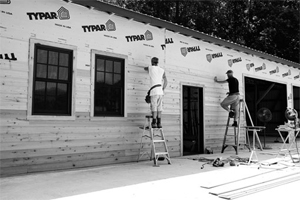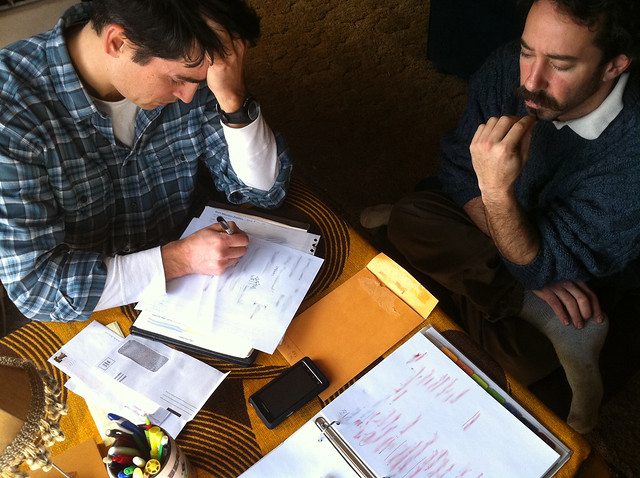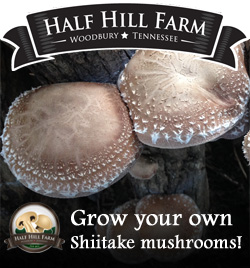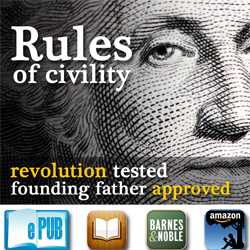Blogging, technology and self-fulfillment
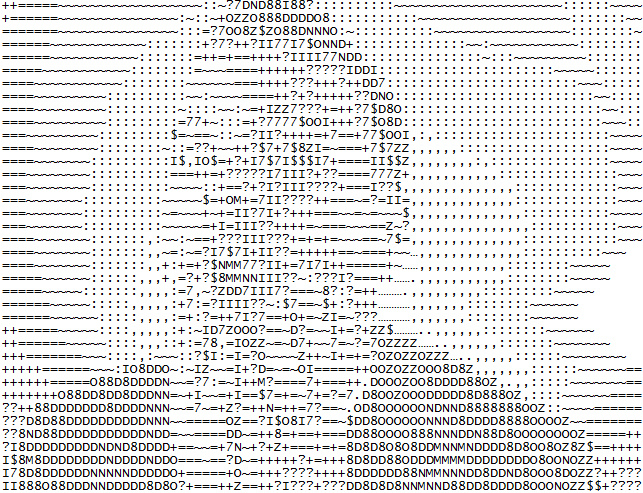
I like to think I’m bi-lingual. If you’re reading this, one language is obvious, and the other is not. The one that’s not is HTML.
Like most people in 1990, I was using Unix commands to dig around on wide open gopher servers of the few universities that were online. I would “finger” active users and saw profiles that used ASCII text to create an image.
ASCII graphics weren’t new, but for a while it was as close as computers could get to delivering an image. At 1200 bps, ASCII was all you were going to get. What was new to me was live interaction with remote users through a computer hooked up to the telephone line.
If we could interact live behind ones and zeros online, it was a matter of time before it was something more real like audio and video. When it comes down to it, pretty much everything is data. That epiphany might sound like a no-brainer now, but to this day this idea leaves wide open many possibilities of how we can share things or experiences in the near future. The only things limiting our vision of the future back then was the size and power of computers.
This new space resonated with a part of me that yearned to share, explore, connect, document, learn, and grow. I felt a real calling. Here was another way to have an impact, a chance to connect with others, and most importantly a way to share my own story in a space where fear and judgement was less of a match for the power of truth and reason in a new public space.
 I went to college and then totally failed at computer science. I changed my major and then took time off school hitchhiking 1,500 miles across Canada and Alaska. I needed to figure some things out.
I went to college and then totally failed at computer science. I changed my major and then took time off school hitchhiking 1,500 miles across Canada and Alaska. I needed to figure some things out.
It turned out, some computer science professors didn’t share my vision of what was coming and thought it was important I learn Pascal which I’m guessing is the Latin of computer programming these days. “Computers do machine things. It’s not some party phone line of yapping teenagers figuring themselves out,” said 1992.
I had met what would become a common road block over the next 20 years, but I eventually returned to school more determined to change the world. That’s when Netscape happened. I quickly taught myself HTML, stuck a message in a bottle and got invited to work changing the world in Washington, D.C.
When I started my blog 14 years ago today, there were only 9.5 million websites in existence. We were quite literally at the beginning of a new world. There are almost 2 billion today. Sites like Facebook now capitalize on that very early yearning I experienced. The empowerment the web has given many people like myself has changed the politics of our country. Most of my life opportunities have flowed through the language of HTML, including meeting my husband.

The past 14 years have taught me that self knowledge plus new technologies equals revolution. Maybe one day we’ll learn the language of reality and write trees, air and mountains, remotely molecularize elements, program germination, or reimage the output of a dreaming brain. But without a strong sense of self, revolution can go very wrong in that world to come. One lesson I’ve learned is there is another language one should master in preparation for any revolution. It’s the language of being the fullest, most actualized human you can be. You’ll never know what is really possible without that.





